Bachelor of Science (B.Sc.)
Agricultural Technology
B.Sc. (Agricultural Technology)
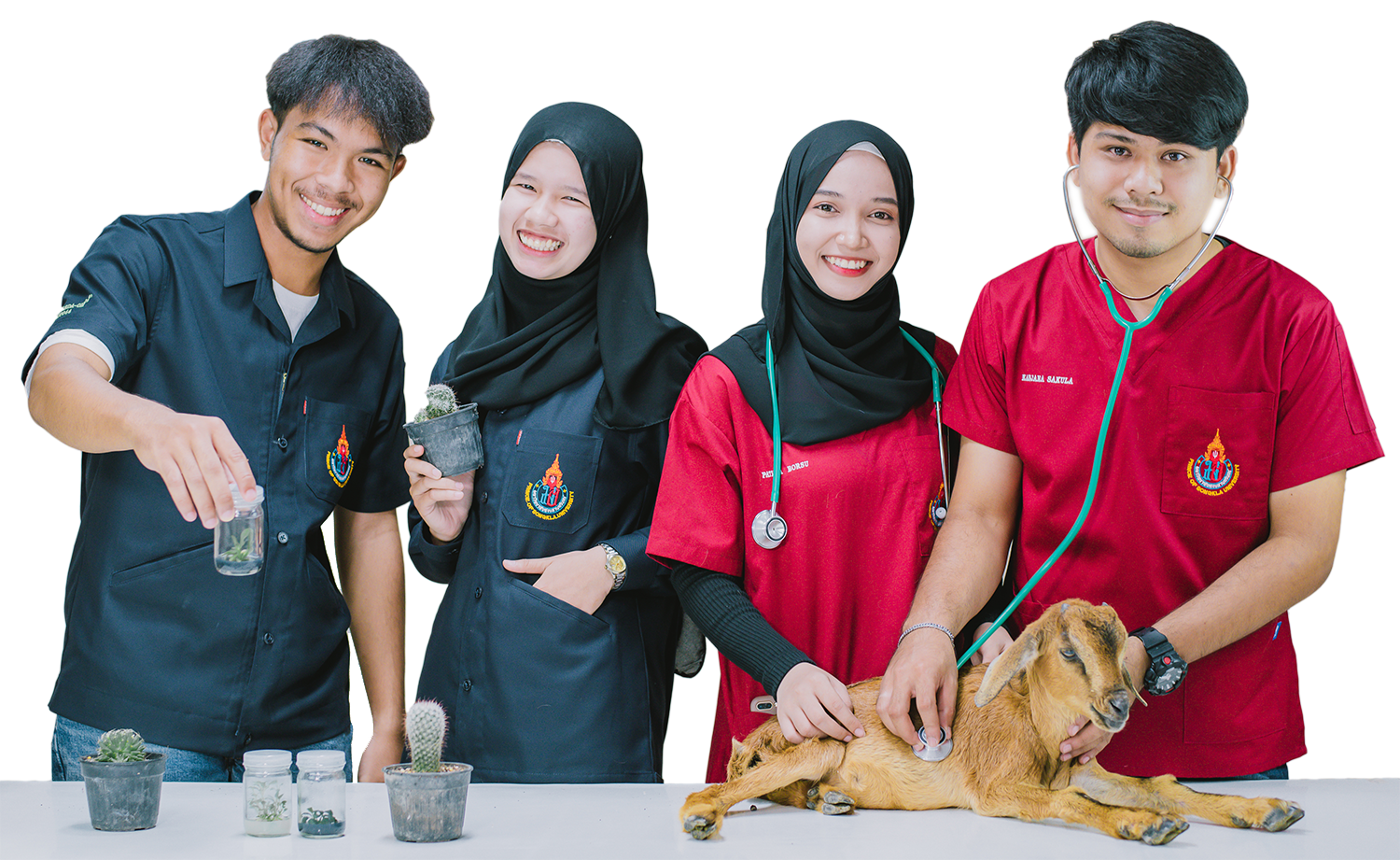
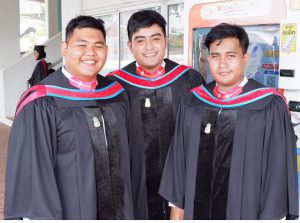
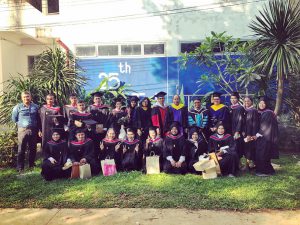
Philosophy and Objectives of the Curriculum
Aim to produce graduates with knowledge, practical skills, and agricultural entrepreneurship skills systematically, able to seek, analyze, summarize, and integrate knowledge for use in their careers; create jobs; and transfer to the agricultural sector appropriately with social conditions and resources; have morality, ethics, and lifelong learning.
The curriculum has specified learning outcomes for each area (Program Learning Outcome) as follows:
- PLO1: Demonstrate professionalism in agriculture, be able to apply knowledge, practical skills, and expertise in related fields to create products according to agricultural standards, and have faith in the profession.
- PLO2: Set goals and plan for self-development in line with the evolution of Thai and global society in the 21st century, including demonstrating universal skills, being open-minded, knowing how to seek knowledge, and learning throughout life.
- PLO3: Behave in a disciplined manner, adhere to morality and ethics, respect social rules, be honest, and have ethics and a good sense of the profession.
- PLO4: Show guidelines for integrating relevant sciences and arts for selecting technology and innovation to lead to success in work appropriately.
- PLO5: Use leadership skills to plan business, solve professional problems critically, and convey positive creativity. and adapt to working with others appropriately according to the situation and opportunity and adhere to the principle of the benefit of fellow human beings as the first task.
- PLO6: Explain and demonstrate the concept of applying the Sufficiency Economy Philosophy to practice a career and guide the agricultural society to be self-reliant sustainably.
Highlights of the program
The Bachelor of Science program in Agricultural Technology covers 2 branches as follows:
- Agricultural Technology Branch, Plant Production Technology Branch
- Agricultural Technology Branch, Animal Production Technology Branch
The Agricultural Technology branch is an interdisciplinary program that uses knowledge in agricultural science, including biological science, physical science, agricultural technology, and agricultural resources. This allows graduates to apply their knowledge to agricultural careers and other related careers, both in the public and private sectors, or as independent careers effectively. They can conduct research and develop agricultural knowledge, as well as act as a medium to transfer knowledge to farmers, communities, and society correctly and efficiently. They have sufficient basic knowledge to continue their studies at a higher level.
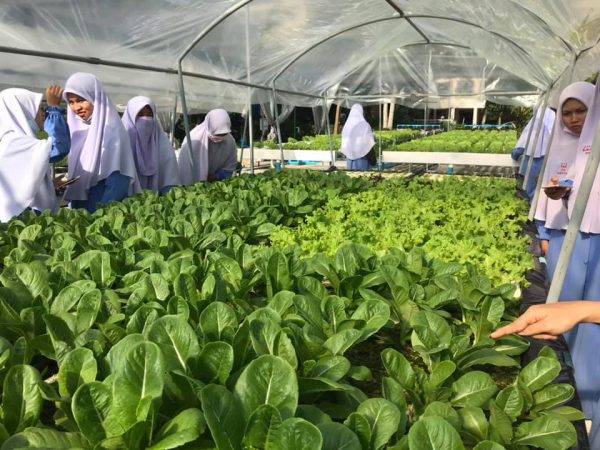
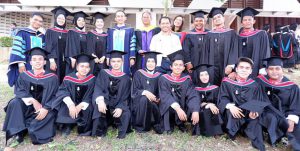
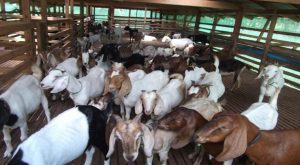
The curriculum integrates agricultural knowledge in both plant and animal production based on the philosophy of sufficiency economy. There is marketing analysis, planning, and promotion of entrepreneurship. In addition, entrepreneurship training has been added as part of the internship and professional skills during the study, using more farms and operational plots of the major. It promotes the application of theoretical knowledge to practical skills, courage to think, courage to do, and expression through the promotion of production, problem-solving in production, post-harvest management, processing, packaging, sales, and income generation during the study. This will give graduates knowledge and skills for a wide range of careers, a positive attitude towards the profession, and the ability to transfer knowledge and skills to the agricultural community and society for the sustainable development of the agricultural economy and society, in response to the Thailand 4.0 policy, which partly aims for farmers to have a better status and become entrepreneurial farmers, focusing on creating new business paths in agricultural technology and food technology.
Course Structure
Total credits throughout the course are not less than 133 credits.

A. General education subjects, not less than 30 credits
- Language and communication 6 credits
- Systems thinking, logical and numerical thinking 4 credits
- Royal science and human benefits 4 credits
- Citizenship and peaceful life: 5 credits
- Entrepreneurship 1 credit
- Living wisely and digital literacy: 4 credits
- Aesthetics and sports 2 credits
- Elective general education: 4 credits

B. Specific subjects, not less than 97 credits
- Basic major subjects, 24 credits
- Required major subjects, 48 credits
- Elective major subjects, 25 credits

C. Elective courses not less than 6 credits

D. Students choose the general plan or the cooperative education plan.
- General plan: internship not less than 300 hours.
- Cooperative education plan: 1 semester of cooperative education.
Independent agricultural professionals and those involved in the application of knowledge from the field, academics, scientists in government agencies such as local administrative organizations, the Ministry of Agriculture and Cooperatives, the Ministry of Natural Resources and Environment, the Ministry of Science and Technology, etc., sales and academic personnel of agricultural business companies, assistant teachers (Announcement No. Sor Thor. 0206.6/1268 dated 24 March 2014)
ข้อมูลติดต่อ
- ดร.ณัฏฐากร วรอัฐสิน Email : natthakorn.w@psu.ac.th
- สาขาวิชาวิทยาการเกษตรและประมง โทร 0 7331 3928 – 52 ต่อ 1874
